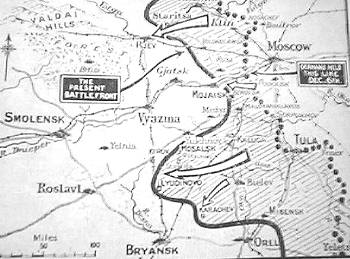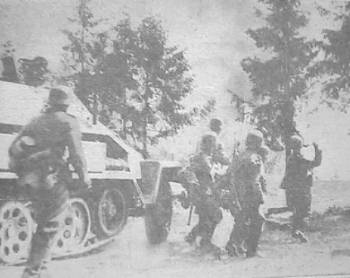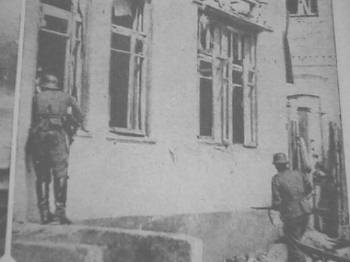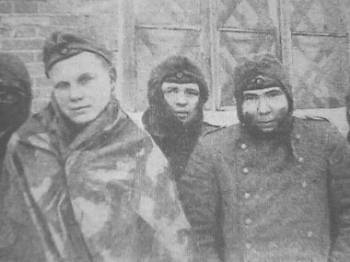ROADS TO MOSCOW
An Al Stewart song from 1973 and its story
Part of the Page27 Music Archive
They crossed over the border
The hour before dawn
Moving in lines through the day
Most of our planes were destroyed
On the ground where they lay
Waiting for orders we held in the wood
Word from the front never came
By evening the sound of the gunfire was miles away
Ah, softly we move through the shadows
Slip away through the trees
Crossing their lines in the mists in the fields
On our hands and our
knees
And all that I ever was able to see
The fire in the air glowing red
Silhouetting the smoke on the breeze

All summer they drove us back through the Ukraine
Smolyensk and Viyasma soon fell
By autumn we stood
With our backs to the town of Orel
Closer and closer to Moscow they come
Riding the wind like a bell
General Guderian stands at the crest of the hill

Winter brought with her the rains
Oceans of mud filled the roads
Gluing the tracks of their tanks to the ground
while the sky filled
with
snow
And all that I ever was able to see
The fire in the air glowing red
Ailhouetting the snow on the breeze

In the footsteps of Napoleon the shadow figures stagger through the
winter
Falling back before the gates of Moscow,
Standing in the wings like an avenger
And far away behind their lines
The partisans are stirring in the forest
Coming unexpectedly upon their outposts
Growing like a promise
You'll never know, you'll never know
Which way to turn, which way to look,
You'll never see us
As we're stealing through the blackness of the night
You'll never know, you'll never hear us
And the evening sings in a voice of amber
The dawn is surely coming
The morning road leads to Stalingrad,
And the sky is softly humming

Two broken Tigers on fire in the night
Flicker their souls to the wind
We wait in the lines for the final approach to begin
It's been almost four years that I've carried a gun
At home it'll almost be spring
The flames of the Tigers are lighting the road to Berlin
Ah, quickly we move through the ruins
That bow to the ground
The old men and children they send out to face us, they can't slow us
down
And all that I ever was able to see
The eyes of the city are opening now
It's the end of the dream
I'm coming home, I'm coming home
Now you can taste it in the wind, the war is over
And I listen to the clicking of the train wheels
As we roll across the
border
And now they ask me of the time
That I was caught behind their lines and taken prisoner
"They only held me for a day, a lucky break", I say;
They turn and listen closer
I'll never know, I'll never know
Why I was taken from the line and all the others
To board a special train and journey
Deep into the heart of holy Russia
And it's cold and damp in the transit camp,
And the air is still and
sullen
And the pale sun of October whispers
"The snow will soon be coming"
And I wonder when I'll be home again
And the morning answers "Never"
And the evening sighs
And the steely Russian skies
Go on forever
Copyright Al Stewart, 1973

According to his dossier, Ivan Denisovich Shukhov had been sentenced for high treason. He had testified to it himself. Yes, he'd surrendered to the Germans with the intention of betraying his country and he'd returned from captivity to carry out a mission for German intelligence. What sort of mission neither Shukhov nor the interrogator sould say. So it had been just that - a mission.
Shukhov reckoned simply. If he didn't sign then he'd be shot. If he signed he'd still get a chance to live. So he signed.
But what really happened was this. In February 1942 their whole army was surrounded on the north-west front. No food was parachuted to them. There were no planes. Things got so bad that they were scraping the hooves of dead horses - the horn could be soaked in water and eaten. They'd had no ammunition left. So the Germans rounded them up in the forest, a few at a time. Shukhov was in one of these groups, and remained in German captivity for a day or two. Then five of them managed to escape. They stole through the forest and marshes again, and, by a miracle, reached their own lines. A tommy-gunner shot two of them on the spot, a third died of his wounds but two got through. Had they been wiser they'd have said they'd been wandering about the forest, and then nothing would have happened. But they told the truth: they said they were escaped p.o.w.s. P.o.w.s, you fuckers! If five of them had got through, their statements could have been found to tally and they might have been believed. But with two it was hopeless.
- Aleksandr Solzhenitsyn, One Day in the
Life
of Ivan
Denisovich. (1962.) Translated by Ralph Parker.
Notes by Charlie Hulme:
One Day in the Life of Ivan Denisovich was required
reading
for
intellectuals in the 1960s. It is a narrative of a (fictional, but
based
on the author's own experience) day in the life of a prisoner in a
Soviet
prison camp, and was one of the first such books to be published. Al
had
been working on the idea of a World War II epic for some time before it
appeared on the Past Present and Future album in 1973.
He took the incident related above (which itself is based on a similar event in Solzhenitsyn's own army career) and enhanced it to become the story of an individual against the background of 'the greatest single event in the history of the world,' as Al describes the German invasion of Russia in 1941. The hero of the the song fights his way to Berlin with the Russian army, only to find himself charged with treason and sent to the Siberian 'Gulag,' a fate which many, many Russians suffered under the regime of Stalin.
All the history in the song is basically true, although as
with all
Al's work the listener whould remember this is a work of art, not
detailed
historical research. The Germans 'crossed over the border' on 22 June
1941
and broke through on several fronts, including the Ukraine offensive
covered
in the song. Smolyensk, Viyazma and Orel were captured in October 1941,
by forces including the Panzer tank divisions headed by general Heinz
Guderian.
By December 1941 the German army was within 30 miles of Moscow, but the
troops were insufficently prepared for the Russian winter, as had been
Napoleon's Grande Armée in 1812.
The Germans met resistance from 'Partisans' - guerilla fighters - as well as from the regular army; the Tiger was a German tank. Adolf Hitler, who had ordered the invasion against the advice of his Generals, dismissed them when the advance was faltering and took command of the army himself, but this did not improve matters. The Germans were forced back until eventually the Red Army took possession of Berlin, the German capital, in 1945. Millions of Russians and Germans perished, and it is almost certain that had this invasion not taken place, Hitler's dominance in Western Europe would have been assured.
The song and its history
Two versions appear on official albums: the studio take
on 'Past Present and Future' and the live version from the Roxy, Los
Angeles,
1981, which was featured on 'Live/Indian Summer' and has since appeared
several times on compilations issued by EMI records (which does not
hold
the license to issue the studio version). Many live versions and two
alternate
takes
have appeared on semi-official tapes, although
these
add little to our knowledge of the song except to remind us that Al
sometimes
gets lost!
Al has said that there is a 'bad edit' during the acoustic guitar introduction, but this and the occasional awkward lyrical phrasings have to be taken as essential parts of the epic (8-minute) track which invariably comes in the top three when Al's fans are polled for their favourite song. 'Smolyensk and Viyasma soon fell' and 'riding the wind like a bell' echo in the mind, as does the image of General Guderian on the crest of a hill. A couple of phrases remind us of earlier songs by Al: the 'gates of the city' previously saw the Electric Los Angeles Sunset, whilst in Elvaston Place the Kensington skies were said to 'go on for ever.'
At the beginning of the Los Angleles live version Al remarks that 'half way through this song strange things will happen, but don't let it put you off.' This has generated some discussion over the years; the general opinion is that Al is referring to the appearance of a string orchestra on the theatre balcony.
A concert from 1977 has been preserved on video, and reminds us that through the 1970s concert performances were accompanied by a back-projected slide show of images from the war. The only significant (deliberate) variation in the words seems to be that 'it's been almost four years that I've carried a gun' is more usually performed as 'carried your gun' which seems to distance the narrator from the cause he's fighting for.
Al returned to the theme of attacks on Russia, this time a
much
earlier
invasion by Sweden, in The Coldest Winter in
Memory,